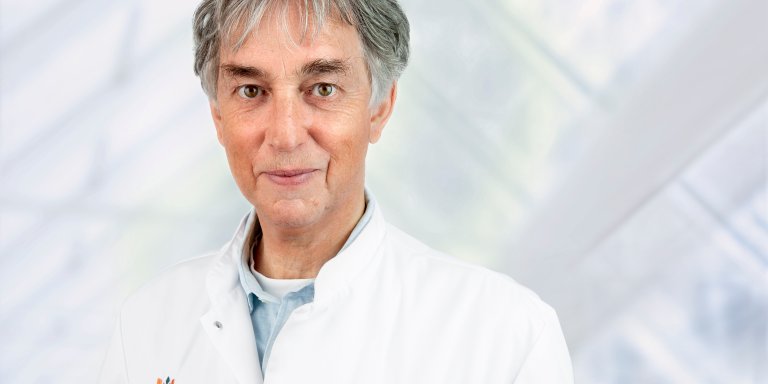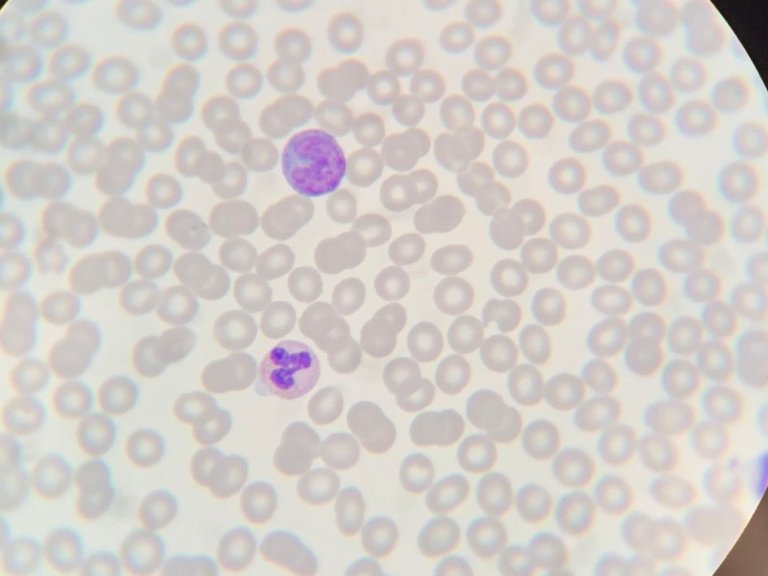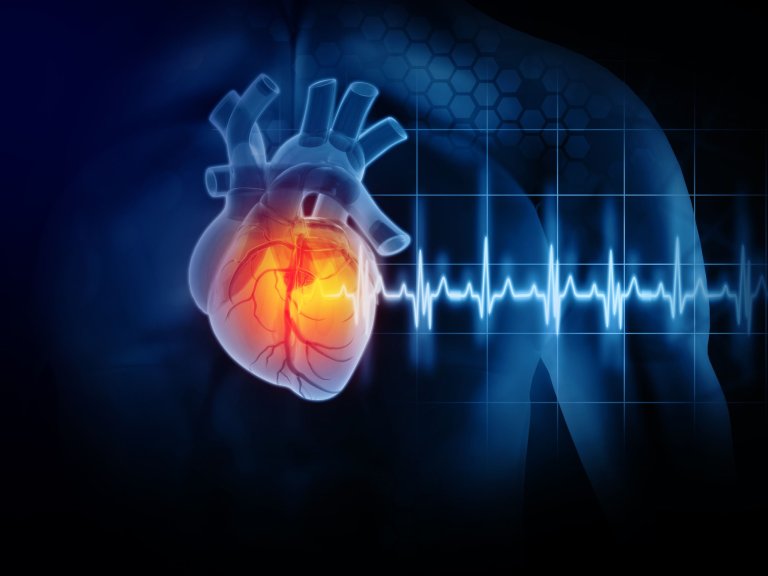Daring to innovate, going against the grain and always keeping the patient the forefront of his mind: that typifies Wilde's career. He obtained his PhD on basic research into the cause of arrhythmias, and the role of ion channels in it, in ischemia of the heart muscle and further specialised in cardiology and electrophysiology. With a grant from the Dutch Heart Foundation, he was then able to build on his PhD research.
"At that very moment, in the mid-nineties, the first international studies appeared on genetic factors that underlie rare heart disease, in which these ion channels also play an important role. In the sixties and seventies, Amsterdam UMC, the Amsterdam University Hospital as it was then called, grew to be one of the most important clinics in the world for patients with special arrhythmias, thanks to my predecessors Dirk Durrer and Hein Wellens. These patients were still being monitored in Amsterdam. I saw them at the outpatient clinic and immediately suggested researching these genetic factors," says Wilde. This confluence of circumstance was the start of a thirty-year career, in which cardiogenetics appeared on the map and Amsterdam UMC grew into one of the leading global institutions in this field.
Lifesaving
These circumstances have now led to Wilde receiving the highest award available from the European Society of Cardiology, something that he doesn't believe he earned alone. "It should be a group award. Our outcomes were only possible through intensive multidisciplinary collaboration, particularly with clinical and molecular genetics," says Wilde.
Over the years, his research group discovered several hereditary abnormalities that can cause potentially fatal cardiac arrhythmias. "Initially, we thought that one genetic abnormality led to one disease. We now know that the combination of several factors mainly determines whether someone actually gets sick," adds Wilde
One of his most important discoveries was the gene abnormality that leads to idiopathic ventricular fibrillation. "This poses a risk of sudden cardiac death without any deviation in the study results being seen beforehand. We can now screen for this and predict who has an increased risk in families with this hereditary disorder. Preventive implantation of an ICD (implantable cardioverter defibrillator) in these people has literally saved lives," says Wilde.
Every year, approximately 1,200 people are examined at Amsterdam UMC for suspected hereditary heart disease, such as the rare and life-threatening CPVT (catecholaminergic polymorphic ventricular tachycardia). "With researchers from Nashville, we unravelled the disease mechanism and found that the pre-existing drug flecainide is successful in these patients. That recommendation is now part of the international guidelines," says Wilde.
Two departments become one
In 2002, Wilde became Head of the Cardiology department at the then AMC. In that role, together with Bas de Mol and Jan Piek, he was at the helm of the merger, ten years later, of the Cardiology and Cardiac Surgery divisions.
"With innovative procedures such as surgical ablations and the placement of artificial valves through the groin, these two worlds increasingly merged in practice. Within the new division, now the Amsterdam UMC Heart Center, we have been at the forefront of many of these important developments: TAVI procedures, subcutaneous ICDs, the wireless pacemaker. We have developed sports cardiology into the important subspecialty that it is today. I have always encouraged pioneering, because I immediately saw the benefits for our patients," says Wilde.
Together with Bert van Rossum (head of the VUmc department), he then led the Cardiology departments during the merger between AMC and VUmc that formed Amsterdam UMC, before stepping aside for his successor Steven Chamuleau. "I never doubted that we would all only get better from this collaboration," reflects Wilde.
No goodbyes
Wilde is retiring, but he is a long way from leaving the field. He continues to see patients and supervise PhD students, and also continues his work as coordinator of the European Research Network for rare heart diseases and as a scientific advisor of the Dutch Heart Foundation. So, it was not a farewell conference yesterday, but a stage on which the current state of cardiogenetic research was presented in its entirety, including the hopeful developments in the field of gene therapy.
Wilde opened the day with his main message: "We're not there yet. I always explain this through stories from three patients who will always stay with me, with whom things did not go well. Ten years ago, I thought we would have solved sudden cardiac death, but it turns out to be more complicated than I thought." Cardiogenetics also has some ground to gain, Wilde believes. That's what his Gold Medallist interview tomorrow at the ESC congress is about. "In the minds of many cardiologists, we deal with rare heart disease. But knowledge of the genetic basis is also becoming increasingly important for risk assessment of large cardiovascular diseases."
Prof. A.A.M. (Arthur) Wilde studied Medicine at the University of Amsterdam and obtained his PhD in 1988. He was registered as a cardiologist in 1994 and as an electrophysiologist in 1996. In 1995 he received a Clinical Established Investigator Grant from the Heart Foundation. Since that time, he has been researching the genetic causes of cardiac arrhythmias and sudden cardiac death.
In 2000 Wilde was appointed professor of Cardiology at the University of Amsterdam. In AMC / Amsterdam UMC he was head of the Laboratory of Experimental Cardiology from 1999, he was head of the Department of Clinical and Experimental Cardiology (later Cardiology) from 2003 to 2019, and he was chairman of the Heart Center division from 2012-2018 and then co-director of research institute ACS (Amsterdam Cardiovascular Sciences) from 2019 until his retirement.
Wilde was appointed a member of the Royal Academy of Arts and Sciences (KNAW) in 2011. Since 2017 he is coordinator of the European Research Network (ERN GUARD-Heart) in the field of hereditary heart disease. Since 2013, he has been affiliated with Columbia University Medical Center in New York, where he has trained doctors and holds consultations. In 2023, he was appointed scientific advisor to the board of the Dutch Heart Foundation.
Upon his retirement, he received the Gold Medal of the European Society of Cardiology (ESC), the highest award given to scientists for their contribution to cardiovascular medicine. He previously received the Distinguished Scientist Award from the American Heart Rhythm Society (2012) and the Descartes-Huygens Prize (2010). Yesterday, he was presented with Royal Distinction for his services to medicine.




